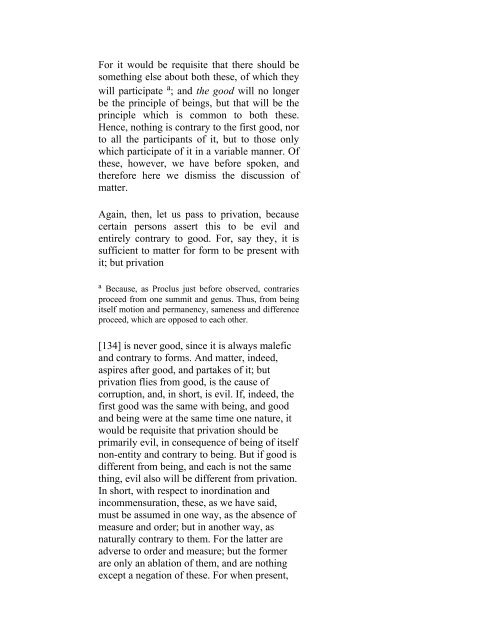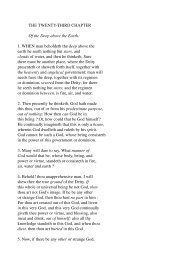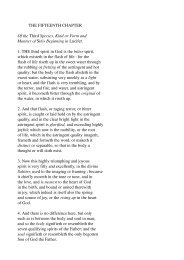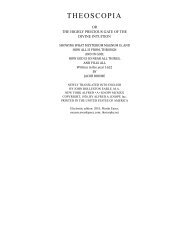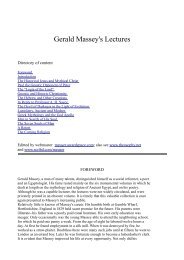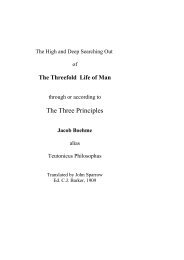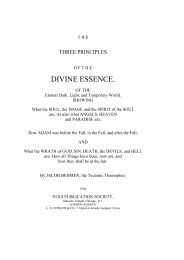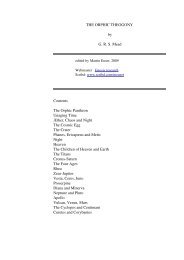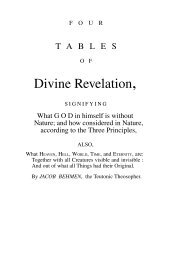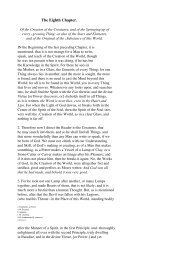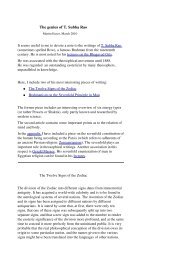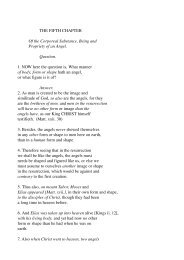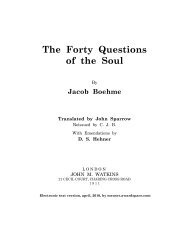PROCLUS, THE PLATONIC SUCCESSOR
PROCLUS, THE PLATONIC SUCCESSOR
PROCLUS, THE PLATONIC SUCCESSOR
You also want an ePaper? Increase the reach of your titles
YUMPU automatically turns print PDFs into web optimized ePapers that Google loves.
For it would be requisite that there should be<br />
something else about both these, of which they<br />
will participate a ; and the good will no longer<br />
be the principle of beings, but that will be the<br />
principle which is common to both these.<br />
Hence, nothing is contrary to the first good, nor<br />
to all the participants of it, but to those only<br />
which participate of it in a variable manner. Of<br />
these, however, we have before spoken, and<br />
therefore here we dismiss the discussion of<br />
matter.<br />
Again, then, let us pass to privation, because<br />
certain persons assert this to be evil and<br />
entirely contrary to good. For, say they, it is<br />
sufficient to matter for form to be present with<br />
it; but privation<br />
a Because, as Proclus just before observed, contraries<br />
proceed from one summit and genus. Thus, from being<br />
itself motion and permanency, sameness and difference<br />
proceed, which are opposed to each other.<br />
[134] is never good, since it is always malefic<br />
and contrary to forms. And matter, indeed,<br />
aspires after good, and partakes of it; but<br />
privation flies from good, is the cause of<br />
corruption, and, in short, is evil. If, indeed, the<br />
first good was the same with being, and good<br />
and being were at the same time one nature, it<br />
would be requisite that privation should be<br />
primarily evil, in consequence of being of itself<br />
non-entity and contrary to being. But if good is<br />
different from being, and each is not the same<br />
thing, evil also will be different from privation.<br />
In short, with respect to inordination and<br />
incommensuration, these, as we have said,<br />
must be assumed in one way, as the absence of<br />
measure and order; but in another way, as<br />
naturally contrary to them. For the latter are<br />
adverse to order and measure; but the former<br />
are only an ablation of them, and are nothing<br />
except a negation of these. For when present,


